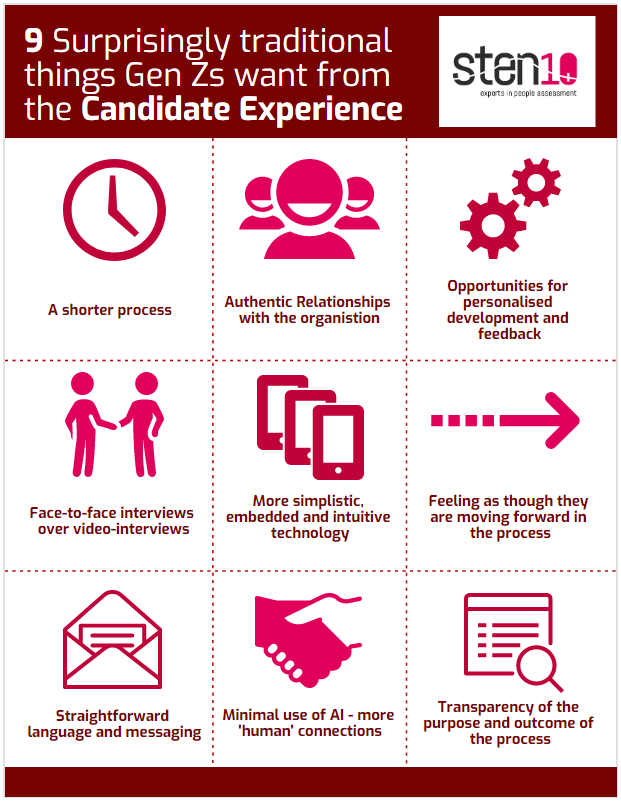You might assume that Generation Z (Gen Zs – those born from 1996 onwards) would like AI and Gamification in assessments, but you could be wrong!
We would perhaps assume this because much like the Millennial generation (those born between 1977-1995), Gen Z’s comfort with new technologies is attributed to growing up in Internet-connected learning environments. The assumption is that Gen Zs would be more inclined to participate in game-based assessments, and in assessment centres that leverage the use of technology to facilitate exercises and feedback.
The reality actually may not be about how many gamified assessments we can throw at Gen Zs to engage and retain them, but rather how we can utilise gamification purposefully, judiciously and in a manner that is reflective of the company’s culture, messaging and branding.
An inordinate amount of time spent on completing an application process or assessment centre comprised of many (however engaging) components, using gamification, technology and/or AI could result in the output being compromised – candidates will likely tire after a point and may not perform as well as they could, may withdraw from the process and/or view the company negatively.
Last week’s webinar, ‘How to future-proof your assessment strategy to recruit the finest early careers talent,’ run by Rowena Bach and Fiadhna McEvoy from Peoplescout, lent more insight into optimising engagement with Gen Zs in the assessment centre process, and what differentiates Gen Zs from other generations. Interestingly, they questioned that if it impresses us as Baby Boomers (those born between 1946-1964) or Gen Xs (those born between 1965-1980), will it also appeal to Gen Zs?
Some takeaways to note were that Gen Zs preferred the following when it comes to the assessment experience:
- A shorter assessment process
- Authentic relationship building i.e. fostering a psychological contract with the organisation
- Communicating pragmatic opportunities for career development and feedback
- Face-to-face interviews over video interviews
- The notion of continuous progress, such as updates and/or chat-box features
- Lesser complexity, with a focus on more simplistic, embedded and intuitive technology
- Minimal use of AI i.e. more ‘human’ and meaningful contact/connections
- More straightforward and ‘to the point’ language and messaging
- Quick results with personalised outcomes/feedback on assessment centre performance
- Transparency in the purpose of the assessment centre and the outcome

What are your views on Gen Zs and assessment strategy? Did you find any of the above information surprising? What actions can you take to ensure that your assessment processes are engaging and robust for Gen Zs … and all generations?
For more on this subject, click here for Sten10’s webinar: Game Based Assessments: The Evidence Base Webinar Recording*, or alternatively, reach out to us for a discussion on how technology can play a valid part in assessments … for all generations!
We have created a checklist, Making the Move to Virtual Assessment Centres, this may help you assess candidates and make the right recruitment decisions. To get your copy, click the link below!




